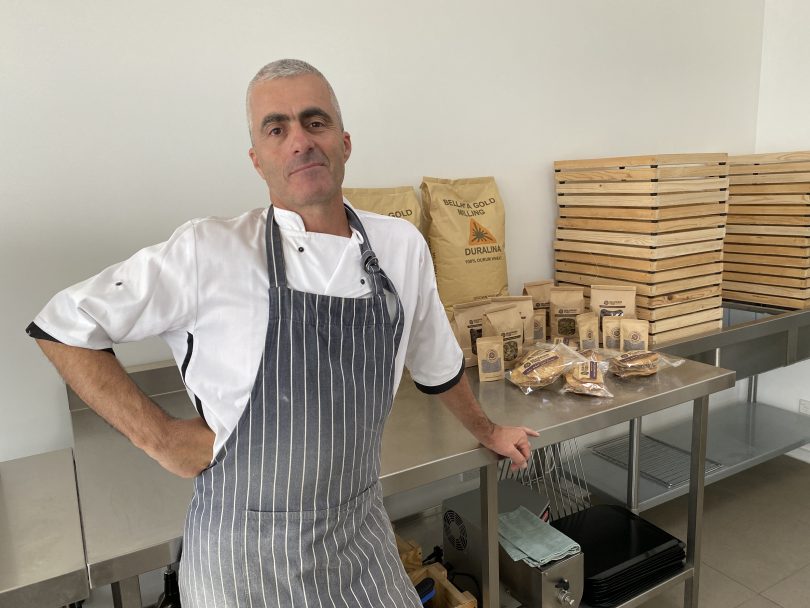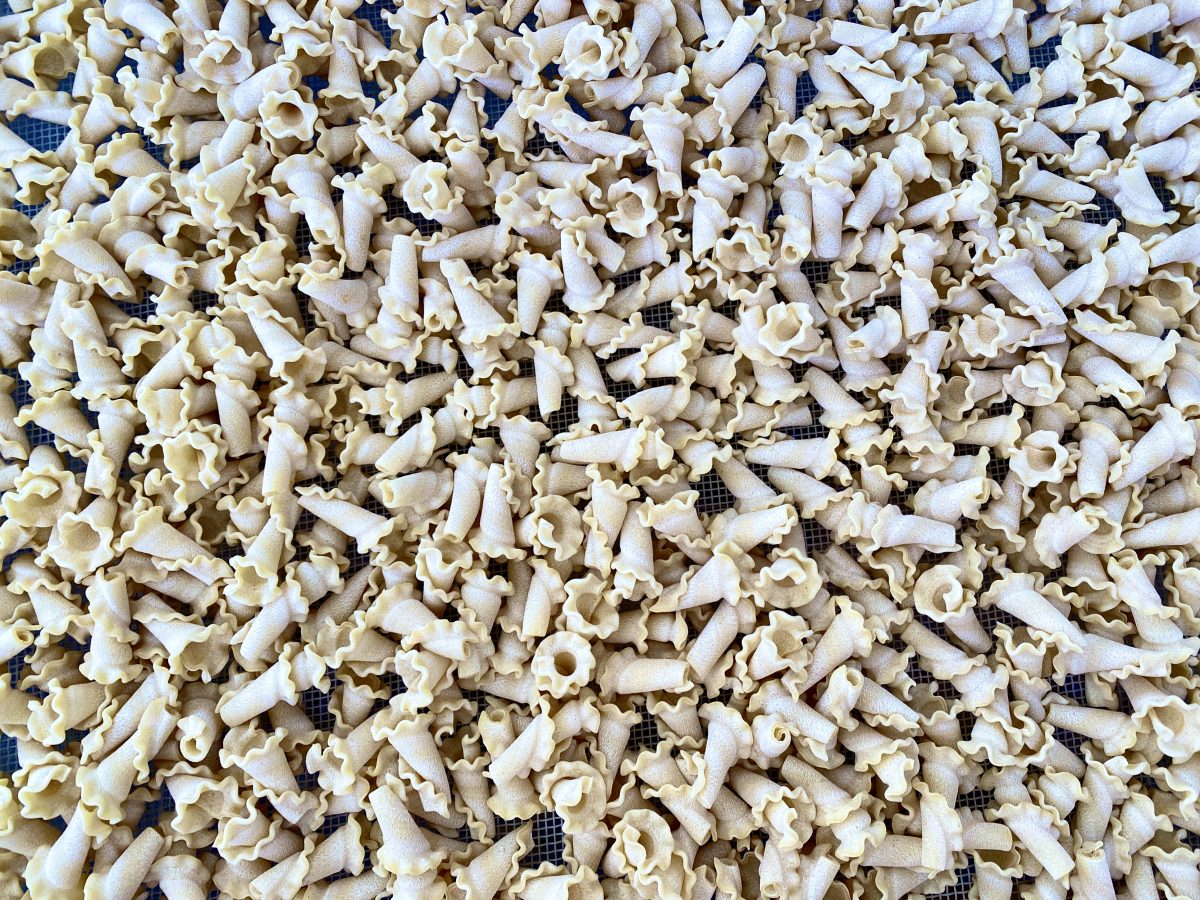
Tim Wimborne may have lost many of his mountain pepper crops during the fires, but he is branching out with new Braidwood Food Company products and a restaurant. Photo: Michelle Rowe.
Just outside Braidwood, on the edge of the coastal escarpment, sits a property named Garaywaa.
Owned by Tim Wimborne and his partner Meraiah Foley and named after the local Dhurga Aboriginal word for Milky Way, the NSW property is the location of Australia’s first commercial native pepper orchard.
The rain-swept escarpment, combined with a 1500-metre-wide seam of basalt sandwiched between the granite of Braidwood and the sandstone of the Budawangs, is a serendipitous union that allows the growth of a native plant known colloquially as mountain pepper, or Tasmannia Lanceolata to those in the know.
When Tim first bought the property in the year 2000, he had no idea that the mountain pepper grew there and, once discovered, he set about planting a mountain pepper orchard with plans to build a wholesale business for the in-demand ingredient.
That was until it all burnt down.
The 2019 bushfires didn’t take everything, but they took the 500 plants in the orchard and most of the native forest plants.

Tim Wimborne at his mountain pepper orchard outside Braidwood. Photo: Tim Wimborne.
Five years on from the fires, Tim is foraging his pepper berries from the surviving wild bushes in the forest while playing a game of patience waiting for the 300 mountain pepper plants that he replanted in his orchard to fruit. However, his vision of a mountain pepper business has shifted significantly in the intervening years.
“My original plan in the orchard is that I would have 3000 trees and I would be a big wholesale supplier to the food production industry. Now I have no intention of doing that,” Tim tells Region.
“The orchard is now a far more modest affair. I still need quite a bit of pepper, but I won’t be selling wholesale; it’s just for my products.”
Those products, sold through his business, the Braidwood Food Company, which he started during the fires, feature pastas, salts and flatbreads made by Tim, and in his own words, the business is booming.
The combination of the native pepper with pasta was originally designed by Tim to share and showcase the flavours of this rare foraged ingredient, and just like the serendipitous nature of the mountain pepper growing on his property, he recognises the serendipitous nature of losing the pepper leading him to found the Braidwood Food Company.
“I never intended to have the kitchen in Braidwood and the Braidwood Food Company as a business at all. The fires dictated that it’s a bit of an accidental business,” Tim says.

Tim’s pasta is dried slowly on wooden racks to preserve the flavour. Photo: Lucy Ridge.
The Australian Mountain Pepper Pasta has become the hero product in his line and is the best seller of his accidental food business. Tim credits much of the growth of his business to his pastas being awarded triple golds and the highest score for any pasta in any category for the past decade of the Sydney Royal Fine Food Show, a result that led to the Braidwood Food Company being crowned a show champion.
“Pasta aficionados like me know what makes good pasta, but having it validated by judges in Australia’s premier pasta competition helps people and guides people to the product,” Tim says.
Making eight tonnes of pasta a year already, Tim has just added three-phase power to his Braidwood kitchen to keep up with demand. He calls himself a tiny player in the pasta game, but his award wins would suggest that he’s an influential player.
Not afraid of feedback, Tim exhibited his mountain pepper pasta at the 2024 Terre Madres Salone Del Gusto in Turin, Italy. The event attracts more than 350,000 people each year and is a forum for people to showcase food projects from around the world.
“I was a little nervous about taking pasta to Italy, but it was really well received because of the nature of the pepper berry being a wild foraged ingredient,” Tim says.
“Europeans have a much deeper connection to foraging for food. It’s culturally something a lot more people do. So people really understood it and they really loved it.”
Back on the farm, as the native pepper slowly recovers from the fires and the orchard finds its feet, a process that Tim says could take up to 10 years, he builds his pasta business by connecting with wholesalers and distributors, a cohort currently 50-strong across Canberra and NSW.
It’s a business that he’s proud to say has incurred no debt in its growth and one that still shares that original native ingredient he was so serendipitous to find when he bought his property more than 20 years ago.
Original Article published by Tenele Conway on Region Canberra.







